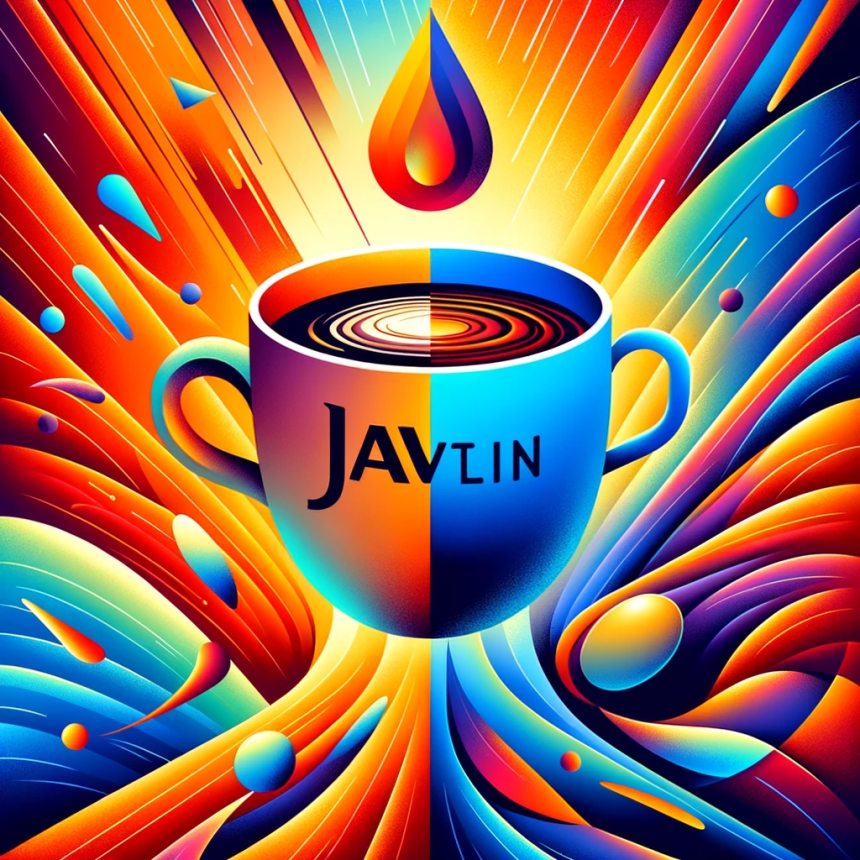
Introduction to Kotlin Functional Programming (2/3)
Continue with the second part of our talk about Functional programming in Kotlin
If you haven’t already, It is recommended to read the previous article first:
In this article we will cover the following topics:
- Writing Cleaner Code with Kotlin FP.
- Real-world Applications of FP in Kotlin.
--------------
[1] Writing Cleaner Code with Kotlin FP
[A] Code Simplification
Let's explore how Kotlin's functional features, such as map, filter, and reduce, can simplify complex operations and lead to cleaner code:
1. Mapping and Transformation:
Kotlin's map function allows you to apply a transformation to each element in a collection, simplifying operations that involve modifying or transforming data.
// Traditional approach to calculate squares of numbers
val numbers = listOf(1, 2, 3, 4, 5)
val squares = mutableListOf<Int>()
for (number in numbers) {
squares.add(number * number)
}
// Using 'map' to achieve the same result more succinctly
val squares = numbers.map { it * it }
In this example, map simplifies the process of calculating the squares of numbers, reducing the need for explicit looping.
2. Filtering Data:
The filter function in Kotlin allows you to easily select elements from a collection that meet specific criteria, making code more readable and concise.
// Traditional approach to filter even numbers
val numbers = listOf(1, 2, 3, 4, 5)
val evenNumbers = mutableListOf<Int>()
for (number in numbers) {
if (number % 2 == 0) {
evenNumbers.add(number)
}
}
// Using 'filter' for a cleaner and more expressive solution
val evenNumbers = numbers.filter { it % 2 == 0 }
By using filter, you eliminate the need for manual iteration and conditional statements.
3. Reducing Data:
Kotlin's reduce function is excellent for aggregating values in a collection, simplifying operations that involve summarizing data.
// Traditional approach to calculate the sum of numbers
val numbers = listOf(1, 2, 3, 4, 5)
var sum = 0
for (number in numbers) {
sum += number
}
// Using 'reduce' to compute the sum more elegantly
val sum = numbers.reduce { acc, number -> acc + number }
The reduce function streamlines the process of computing sums or other aggregations by providing a concise and expressive solution.
4. Chaining Operations:
Kotlin's functional features can be easily chained together, allowing you to create complex data transformations in a clean and readable manner.
// Chaining 'map' and 'filter' operations to select even squares
val numbers = listOf(1, 2, 3, 4, 5)
val evenSquares = numbers
.map { it * it }
.filter { it % 2 == 0 }
By chaining functions, you create a pipeline of operations, making it clear what each step does and promoting clean code.
In summary, Kotlin's functional features like map, filter, and reduce simplify complex operations, reduce boilerplate code, and lead to cleaner and more expressive code. These features encourage a more functional and declarative style of programming, making it easier to understand and maintain your code.
[B] Avoiding Common Pitfalls
Let's discuss common pitfalls in Object-Oriented Programming (OOP) that can be avoided in Functional Programming (FP), such as null pointer exceptions and mutable shared states.
1) Null Pointer Exceptions:
- OOP Pitfall: In OOP, null references are a common source of runtime errors, particularly null pointer exceptions. When a method is called on a null object reference, it leads to a runtime crash.
String name = null; int length = name.length(); // NullPointerException
- FP Solution: FP languages like Kotlin emphasize null safety by distinguishing between nullable and non-nullable types. This helps prevent null pointer exceptions at compile-time.
val name: String? = null val length = name?.length // Safe call, 'length' is null, no exception
2) Mutable Shared States:
- OOP Pitfall: OOP often involves mutable shared states, where multiple objects can access and modify the same data concurrently. This can lead to race conditions and bugs that are hard to track.
class BankAccount {
private double balance;
public void deposit(double amount) {
balance += amount;
}
public double getBalance() {
return balance;
}
}
- FP Solution: FP encourages immutability and avoids mutable shared states. In FP, data is treated as immutable, and modifications create new instances, reducing the risk of concurrent access issues.
data class BankAccount(val balance: Double)
fun deposit(account: BankAccount, amount: Double): BankAccount {
return account.copy(balance = account.balance + amount)
}
val account = BankAccount(1000.0)
val updatedAccount = deposit(account, 500.0)
3) Side Effects:
- OOP Pitfall: In OOP, methods can have side effects, which means they modify state outside their scope. These side effects can make code harder to reason about and lead to unexpected behavior.
class ShoppingCart {
private List<Item> items = new ArrayList<>();
public void addItem(Item item) {
items.add(item);
}
public List<Item> getItems() {
return items;
}
}
- FP Solution: FP encourages pure functions, which have no side effects and produce the same output for the same input. This promotes predictability and testability.
data class ShoppingCart(val items: List<Item>)
fun addItem(cart: ShoppingCart, item: Item): ShoppingCart {
return cart.copy(items = cart.items + item)
}
By following FP principles, you can avoid these common pitfalls in OOP, resulting in more robust, predictable, and maintainable code. FP's emphasis on immutability, null safety, and pure functions contributes to cleaner and safer software development practices.
--------------
[2] Real-world Applications of FP in Kotlin
Functional Programming (FP) with Kotlin can be particularly beneficial in Android app development due to its ability to improve code quality, maintainability, and concurrency handling. Let's explore how FP benefits Android development.
1. Immutability and Predictable State:
- Scenario: In Android development, managing the state of UI components, data, and shared resources can be complex. Concurrency issues, such as race conditions and data inconsistencies, can arise when multiple threads access shared mutable data.
- FP Solution: Kotlin's emphasis on immutability and immutable data structures helps ensure that data remains predictable and avoids concurrent modification issues. This is particularly useful when dealing with UI state and threading.
data class AppState(val counter: Int) // Immutable state ensures predictability val initialAppState = AppState(counter = 0)
2. Functional Reactive Programming (FRP):
- Scenario: Handling asynchronous and event-driven programming, such as UI interactions, network requests, and data updates, can result in callback hell and complex code flow.
- FP Solution: Libraries like RxJava and Kotlin Flow enable functional reactive programming, allowing developers to express asynchronous operations declaratively and compose complex flows of data with ease.
// Using Kotlin Flow to handle asynchronous operations
val networkData = networkService.fetchData()
networkData
.map { it.process() }
.filter { it.isValid() }
.collect { result ->
// Handle the result
}
3. Avoiding Null Pointer Exceptions:
- Scenario: Null pointer exceptions are a common source of crashes in Android apps, often occurring when accessing UI elements or data that may be null.
- FP Solution: Kotlin's type system helps prevent null pointer exceptions through nullable and non-nullable types. This encourages safe handling of nullable data using constructs like safe calls and the Elvis operator.
val text: String? = possiblyNullableFunction() val length = text?.length ?: 0
4. Testing and Mocking:
- Scenario: Writing unit tests for Android components, especially when dealing with complex interactions and dependencies, can be challenging.
- FP Solution: FP promotes pure functions and dependency injection, making it easier to write unit tests by providing predictable inputs and outputs. Mocking dependencies and testing functions becomes straightforward.
// Dependency injection in FP style
class MyViewModel(private val repository: MyRepository) {
fun fetchData() {
// Use 'repository' to fetch data
}
}
5. Composable UI:
- Scenario: Building flexible and composable user interfaces is a key aspect of Android app development. Reusing UI components and keeping UI code clean can be a challenge.
- FP Solution: Functional concepts, such as higher-order functions and composability, can be applied to create reusable and modular UI components. Libraries like Jetpack Compose embrace FP principles for building modern Android UIs.
@Composable
fun MyComposable() {
Column {
Text("Hello, World!")
Button(onClick = { /* Handle button click */ }) {
Text("Click Me")
}
}
}
In conclusion, Functional Programming (FP) with Kotlin offers significant advantages in Android app development. By promoting immutability, predictable state, and functional reactive programming, Kotlin empowers developers to write cleaner, safer, and more maintainable Android apps. Additionally, it addresses common Android development challenges, such as handling asynchronous operations and avoiding null pointer exceptions, leading to a more robust and efficient development process.
That's it for now... We will continue our Functional Programming talk in the following final article.
--------------
Next Part ==> Introduction to Kotlin Functional Programming (part 3)





